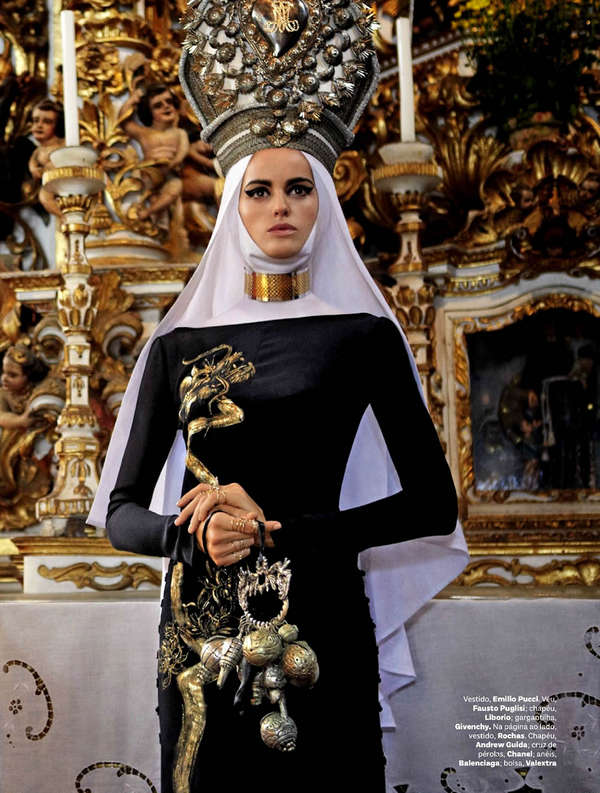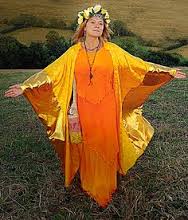Religion in West Phoenicia: Difference between revisions
No edit summary |
|||
| (46 intermediate revisions by the same user not shown) | |||
| Line 1: | Line 1: | ||
{{wip}} | |||
{{Infobox Government agency | |||
|agency_name = Ministry of Faith | |||
|nativename = | |||
|nativename_a = | |||
|nativename_r = | |||
|logo = | |||
|logo_width = | |||
|logo_caption = | |||
|seal = | |||
|seal_width = | |||
|seal_caption = | |||
|picture =WPReligiousCourt.jpg | |||
|picture_width =180px | |||
|picture_caption = | |||
|Motto =God in all of us | |||
|formed = 1950 | |||
|preceding1 = | |||
|preceding2 = | |||
|dissolved = | |||
|superseding = | |||
|jurisdiction = [[West Phoenicia|Empire of West Phoenicia]] | |||
|headquarters =[[Agape]], [[West Phoenicia]] | |||
|employees = 120,000 | |||
|budget = 4 billion | |||
|minister1_name = Deputy Pontifex Jim Wacco | |||
|minister1_pfo=Minister of Faith | |||
|minister2_name =Deputy High Priest August Moon | |||
|minister2_pfo =Minister of Pagan Faiths | |||
|chief1_name =[[Joyce Graham|Rev. Joyce Graham]] | |||
|chief1_position = President | |||
|url= | |||
|chief2_name = | |||
|chief2_position = | |||
|child1_agency = | |||
|child2_agency = | |||
|website = | |||
|footnotes = | |||
}} | |||
The Ministry of Faith is a religious agency established by the West Phoenician government that is regulated by The State Church and United Pagan Faiths. | |||
Other religions not banned have representatives and departments within the ministry. | |||
The Ministry of Faith has offices located in all 53 city-states. | |||
The main headquarters is located in Agape, West Phoenicia. | |||
The Ministry of Faith's role is to ensure correct religious teaching is happening, promote proper teaching of religion and worship, care for the needs of religious citizens, investigate claims of heresy and banned religious teachings in West Phoenicia and oversee The Inquisition Tribunal; a court system designed to punish those who practise heresy and the authority to exile those practising banned religions. | |||
The Ministry of Faith employs 6,000 Faith Keeper. Faith Keepers responsibility is to enforce accurate religious teachings and laws of each religious group and to investigate crimes against religion; which include hate crimes, discrimination and proselytizing abanned religions to members of the public. | |||
Faith Keepers have the power to arrest and detain suspected individuals and issues summons to appear before the Ministry of Faith or the Inquisition Tribunal. | |||
==History== | |||
===True Path Faith=== | |||
The 2019 census showed 70 to 80% of citizens, identified as followers of the True Path faith. | |||
==== | The True Path Faith is a syncretistic unification of Catholicism, Protestantism, Eastern Orthodox and Mormonism. | ||
Adherents of the True Path Faith worship in Mega Worship Centres throughout the Empire. | |||
While the True Path Faith is the biggest Christian body; there are a number of Catholic and Protestant churches operating under their own banner not affiliated with the True Path. | |||
====Former Clergy of the True Path Faith ==== | |||
* 2013- [[Pontifex Angelika I Deo Deuotus]] | |||
* 2010 to 2013: [[Most High Reverend Darius Mckay]] | |||
* 2001 to 2010: [[Pontifex Mary Macedonia]] | |||
*1983 to 2001: [[Most High Reverend Darius Mckay]] | |||
*1981-1983: [[Archbishop Dave McCross]] | |||
*1960- 1981: [[Holy Mother Cherice Liverpool]] | |||
*1951- 1960: [[Pontifex Michael Vessel]] | |||
*1946- 1951: [[Pontifex Peter Humility]] | |||
*1941-1946: [[Pontifex Samuel Pascoe]] | |||
*1940-1941: [[Archbishop Robert Swanston]] | |||
*1938-1940: [[Most High Sister Christine Kenya]] | |||
*1930-1938: [[Most High Brother Kevin Kenya]] | |||
*1900-1930: [[Pontifex Nigel the Healer]] | |||
[[File:Pontificate-Angelique-1.jpg|80px|center|frame|The Supreme Head of the State Church in West Phoenicia is Pontifex Angelika I Deo Deuotus. Whose palatial residence is in Agape]] | |||
==Paganism== | |||
Paganism is the second major faith in the Confederate Empire of West Phoenicia, | Paganism is the second major faith in the Confederate Empire of West Phoenicia, | ||
| Line 36: | Line 100: | ||
New Egypt, Bast County, Selene Valley, New Rome, Polytheisa Heaven and Helios Region boasts the largest numbers of pagan adherents where the old pagan ways flourish. | New Egypt, Bast County, Selene Valley, New Rome, Polytheisa Heaven and Helios Region boasts the largest numbers of pagan adherents where the old pagan ways flourish. | ||
Asherah Grove, the capital city of Baal Territory holds the residence of High Priestess Margie Brixton; the head of the pagan faiths which united to form a United Pagan Council representing all recognised pagan and | Asherah Grove, the capital city of Baal Territory holds the residence of High Priestess Margie Brixton; the head of the pagan faiths which united to form a United Pagan Council representing all recognised pagan and Wiccan faiths. | ||
These city-states are lined with temples dedicated to a pantheon of gods, goddesses and animal deities deemed for suitable worship by the United Pagan council. | These city-states are lined with temples dedicated to a pantheon of gods, goddesses and animal deities deemed for suitable worship by the United Pagan council. | ||
There are countless shops and markets dedicated to witchcraft, charms, potions, mediums, temple prostitutes and fortune tellers which help boost the West Phoenician economy. | There are countless shops and markets dedicated to witchcraft, charms, potions, mediums, temple prostitutes and fortune-tellers which help boost the West Phoenician economy. | ||
===Clergy of the United Pagan Faiths of West Phoenicia=== | |||
* 2010- [[Margie Brixton|High Priestess Margie Brixton]] | |||
[[File:MargieBrixton.jpg|50px|center|frame|Margie Brixton; Head of the United Pagan Faiths]] | |||
===West Phoenician Pantheon of Deities=== | |||
West Phoenicia's large pagan population is polytheist in nature. | |||
Over 1000 gods, goddesses and animal deities are part of the West Phoenician Pantheon, absorbed from over a dozen ancient cultures, blended into the West Phoenician culture. | |||
'''Pan''' | |||
[[File:Wpmusicgod.jpg|90px]] | |||
Pan is one of the earliest music deities found in West Phoenician folklore. His origin is traced back to Greek colonies that popped up in pre-West Phoenician times. | |||
Pan is responsible for rustic music and nature. Musician often say a prayer to Pan before a performance to receive his blessing. | |||
'''Euterpe''' | |||
[[File:WPBritannicaEuterpe.jpg|90px]] | |||
Euterpe is a Greek muse of lyric poetry. She was introduced to the region by travelling ministels, bards and poets who were invited to perform in the royal court of the Imperium royal family in Greater Phoenicia in 1145 during the reign of [[Delphina Imperium|Queen Delphina Imperium]] | |||
Queen Dephina Imperium incorporated the muse as a minor goddess in the pantheon as part of a Greco-Phoenician syncretism | |||
Euterpe was given authority over wind instruments, lyrical music and poetry. | |||
Statues of Euterpe are a common sight in outdoor music establishments and concerts. | |||
The Imperial palace in Melbourne-Haven, has a garden of Euterpe to honour the goddess. The garden has featured in a number of royal weddings and galas. | |||
==Other Faiths== | |||
* Judaism has a strong number of adherents and synagogues in the City-states of Herodian Valley and New Egypt | * Judaism has a strong number of adherents and synagogues in the City-states of Herodian Valley and New Egypt | ||
| Line 49: | Line 147: | ||
* Hinduism, Jainism and Sikhism have small communities of followers and a scattering of worship centres in Deception Bay, Acapella and Fort Blackfoot. | * Hinduism, Jainism and Sikhism have small communities of followers and a scattering of worship centres in Deception Bay, Acapella and Fort Blackfoot. | ||
==Banned Religions== | |||
The practice of Religion is overseen by the Ministry of Faith. The ministry follows strict guidelines to determine which religious groups are suitable and which are a danger to the citizens and need to be banned. | The practice of Religion is overseen by the Ministry of Faith. The ministry follows strict guidelines to determine which religious groups are suitable and which are a danger to the citizens and need to be banned. | ||
| Line 62: | Line 160: | ||
* Quakers | * Quakers | ||
==The Inquisition Tribunal== | |||
| Line 99: | Line 166: | ||
|court_name = Inquisition Tribunal | |court_name = Inquisition Tribunal | ||
|native_name = | |native_name = | ||
| established =1950 (by Act of the Senate) <br/> | | established =1950 (by Act of the Senate) <br/> 1951 (effective) | ||
| country = {{flag|West Phoenicia }} | | country = {{flag|West Phoenicia }} | ||
| location = Blessed City, Agape | | location = Blessed City, Agape | ||
| image = Rome_(IT),_Corte_Suprema_di_Cassazione_--_2013_--_3787.jpg | | image = Rome_(IT),_Corte_Suprema_di_Cassazione_--_2013_--_3787.jpg | ||
| type = Appointed by the | | type = Appointed by the Monarch with Senate confirmation and Religious Clergy appointment. | ||
| authority = Pontifex of the State Faith and Pagan Faiths | | authority = Pontifex of the State Faith and United Pagan Faiths | ||
| terms = | | terms = Life term | ||
| positions = 12 | | positions = 12 | ||
| website = | | website = | ||
| chiefjudgetitle = Chief Justice | | chiefjudgetitle = Chief Justice | ||
| chiefjudgename = [[ | | chiefjudgename = [[Cheryl Swann]] | ||
| termstart = | | termstart = 4 February 2010 | ||
}} | }} | ||
The Inquisition Tribunal is the highest religious court in West Phoenicia. It's primary cases are against heretics, religious hate groups and prothelyziers. | |||
The Inquisition Tribunal acts as an ecclesiastical Tribunal institution of the Ministry of Faith. | |||
The Ministry uses the Inquisition Tribunal to combat heresy, hold trials of individuals accused of heresy and religious hate crime | |||
The Inquisition Tribunal has jurisdiction over all citizens except for permanent residents or visitors. | |||
The overwhelming majority of sentences consist of penances like attending religious classes, going on pilgrimages etc. | |||
When a suspect is convicted of unrepentant heresy, intolerance or hate the Inquisition tribunal has the power and authority to impose harsher sentences of prison terms | |||
The most extreme being burning at the stake. | |||
The main Inquisition Tribunals courts are located in [[Agape]] and [[Selene Valley]]. | |||
[[Category:West Phoenicia]] | |||
[[category:religion]] | |||
Latest revision as of 09:41, 2 June 2020
This article is incomplete because it is pending further input from participants, or it is a work-in-progress by one author. Please comment on this article's talk page to share your input, comments and questions. Note: To contribute to this article, you may need to seek help from the author(s) of this page. |
 | |
| Agency overview | |
|---|---|
| Formed | 1950 |
| Jurisdiction | Empire of West Phoenicia |
| Headquarters | Agape, West Phoenicia |
| Employees | 120,000 |
| Annual budget | 4 billion |
| Ministers responsible |
|
| Agency executive |
|
The Ministry of Faith is a religious agency established by the West Phoenician government that is regulated by The State Church and United Pagan Faiths.
Other religions not banned have representatives and departments within the ministry.
The Ministry of Faith has offices located in all 53 city-states. The main headquarters is located in Agape, West Phoenicia.
The Ministry of Faith's role is to ensure correct religious teaching is happening, promote proper teaching of religion and worship, care for the needs of religious citizens, investigate claims of heresy and banned religious teachings in West Phoenicia and oversee The Inquisition Tribunal; a court system designed to punish those who practise heresy and the authority to exile those practising banned religions.
The Ministry of Faith employs 6,000 Faith Keeper. Faith Keepers responsibility is to enforce accurate religious teachings and laws of each religious group and to investigate crimes against religion; which include hate crimes, discrimination and proselytizing abanned religions to members of the public.
Faith Keepers have the power to arrest and detain suspected individuals and issues summons to appear before the Ministry of Faith or the Inquisition Tribunal.
History
True Path Faith
The 2019 census showed 70 to 80% of citizens, identified as followers of the True Path faith.
The True Path Faith is a syncretistic unification of Catholicism, Protestantism, Eastern Orthodox and Mormonism.
Adherents of the True Path Faith worship in Mega Worship Centres throughout the Empire.
While the True Path Faith is the biggest Christian body; there are a number of Catholic and Protestant churches operating under their own banner not affiliated with the True Path.
Former Clergy of the True Path Faith
- 2013- Pontifex Angelika I Deo Deuotus
- 2010 to 2013: Most High Reverend Darius Mckay
- 2001 to 2010: Pontifex Mary Macedonia
- 1983 to 2001: Most High Reverend Darius Mckay
- 1981-1983: Archbishop Dave McCross
- 1960- 1981: Holy Mother Cherice Liverpool
- 1951- 1960: Pontifex Michael Vessel
- 1946- 1951: Pontifex Peter Humility
- 1941-1946: Pontifex Samuel Pascoe
- 1940-1941: Archbishop Robert Swanston
- 1938-1940: Most High Sister Christine Kenya
- 1930-1938: Most High Brother Kevin Kenya
- 1900-1930: Pontifex Nigel the Healer
Paganism
Paganism is the second major faith in the Confederate Empire of West Phoenicia,
The city-states of Baal Territory, Ptolemaic Haven, Mythologica, Yule Island, Druidia, New Egypt, Bast County, Selene Valley, New Rome, Polytheisa Heaven and Helios Region boasts the largest numbers of pagan adherents where the old pagan ways flourish.
Asherah Grove, the capital city of Baal Territory holds the residence of High Priestess Margie Brixton; the head of the pagan faiths which united to form a United Pagan Council representing all recognised pagan and Wiccan faiths.
These city-states are lined with temples dedicated to a pantheon of gods, goddesses and animal deities deemed for suitable worship by the United Pagan council. There are countless shops and markets dedicated to witchcraft, charms, potions, mediums, temple prostitutes and fortune-tellers which help boost the West Phoenician economy.
Clergy of the United Pagan Faiths of West Phoenicia
West Phoenician Pantheon of Deities
West Phoenicia's large pagan population is polytheist in nature.
Over 1000 gods, goddesses and animal deities are part of the West Phoenician Pantheon, absorbed from over a dozen ancient cultures, blended into the West Phoenician culture.
Pan
Pan is one of the earliest music deities found in West Phoenician folklore. His origin is traced back to Greek colonies that popped up in pre-West Phoenician times. Pan is responsible for rustic music and nature. Musician often say a prayer to Pan before a performance to receive his blessing.
Euterpe
Euterpe is a Greek muse of lyric poetry. She was introduced to the region by travelling ministels, bards and poets who were invited to perform in the royal court of the Imperium royal family in Greater Phoenicia in 1145 during the reign of Queen Delphina Imperium
Queen Dephina Imperium incorporated the muse as a minor goddess in the pantheon as part of a Greco-Phoenician syncretism Euterpe was given authority over wind instruments, lyrical music and poetry.
Statues of Euterpe are a common sight in outdoor music establishments and concerts. The Imperial palace in Melbourne-Haven, has a garden of Euterpe to honour the goddess. The garden has featured in a number of royal weddings and galas.
Other Faiths
- Judaism has a strong number of adherents and synagogues in the City-states of Herodian Valley and New Egypt
- Buddhism, Taoism, Confucianism and Shintoism have a number of temples and adherents in Polytheisa Heaven, Titania and the Scarlett Orient Isles.
- Hinduism, Jainism and Sikhism have small communities of followers and a scattering of worship centres in Deception Bay, Acapella and Fort Blackfoot.
Banned Religions
The practice of Religion is overseen by the Ministry of Faith. The ministry follows strict guidelines to determine which religious groups are suitable and which are a danger to the citizens and need to be banned. The following are banned religions.
- Islam
- Atheism
- Jehovah Witnesses
- Scientology
- Gnosticism
- Satanism
- Quakers
The Inquisition Tribunal
| Inquisition Tribunal | |
|---|---|
 | |
| Established | 1950 (by Act of the Senate) 1951 (effective) |
| Location | Blessed City, Agape |
| Composition method | Appointed by the Monarch with Senate confirmation and Religious Clergy appointment. |
| Authorized by | Pontifex of the State Faith and United Pagan Faiths |
| Judge term length | Life term |
| Number of positions | 12 |
| Chief Justice | |
| Currently | Cheryl Swann |
| Since | 4 February 2010 |
The Inquisition Tribunal is the highest religious court in West Phoenicia. It's primary cases are against heretics, religious hate groups and prothelyziers.
The Inquisition Tribunal acts as an ecclesiastical Tribunal institution of the Ministry of Faith. The Ministry uses the Inquisition Tribunal to combat heresy, hold trials of individuals accused of heresy and religious hate crime
The Inquisition Tribunal has jurisdiction over all citizens except for permanent residents or visitors. The overwhelming majority of sentences consist of penances like attending religious classes, going on pilgrimages etc.
When a suspect is convicted of unrepentant heresy, intolerance or hate the Inquisition tribunal has the power and authority to impose harsher sentences of prison terms
The most extreme being burning at the stake.
The main Inquisition Tribunals courts are located in Agape and Selene Valley.



